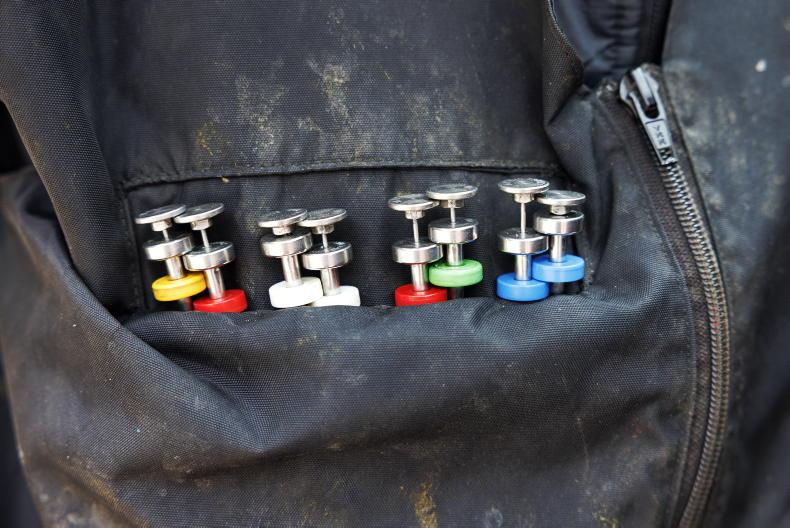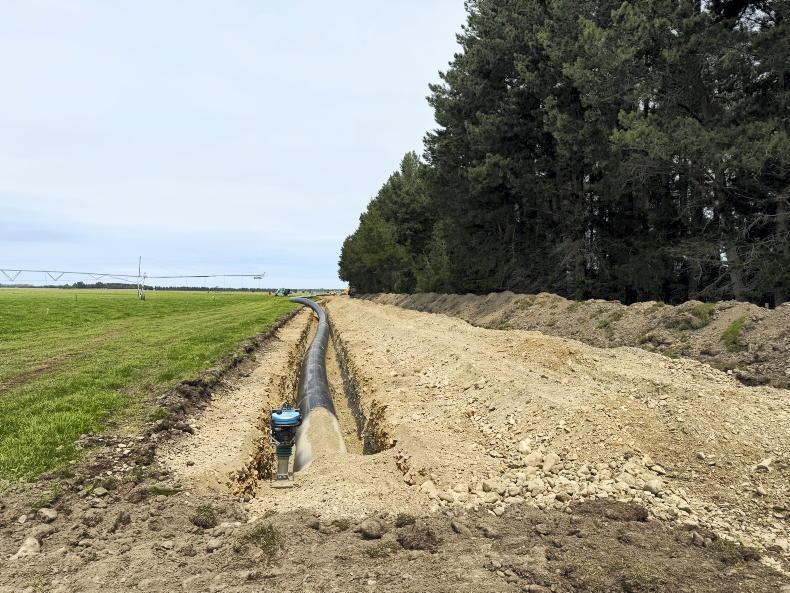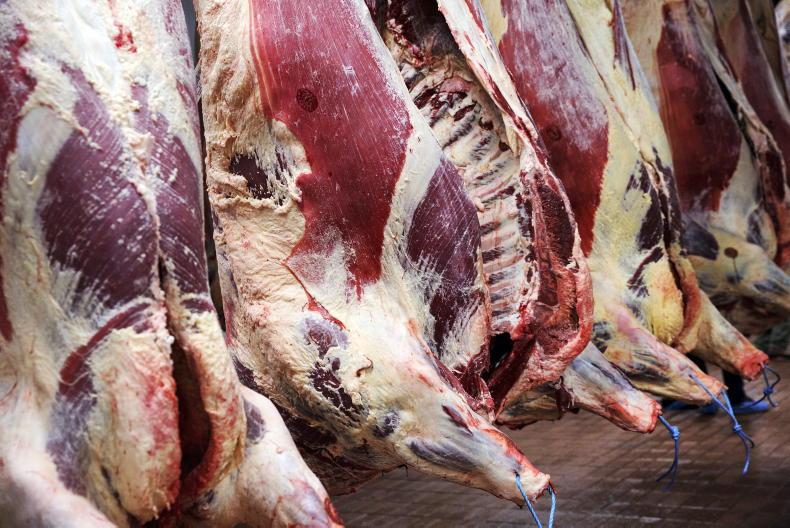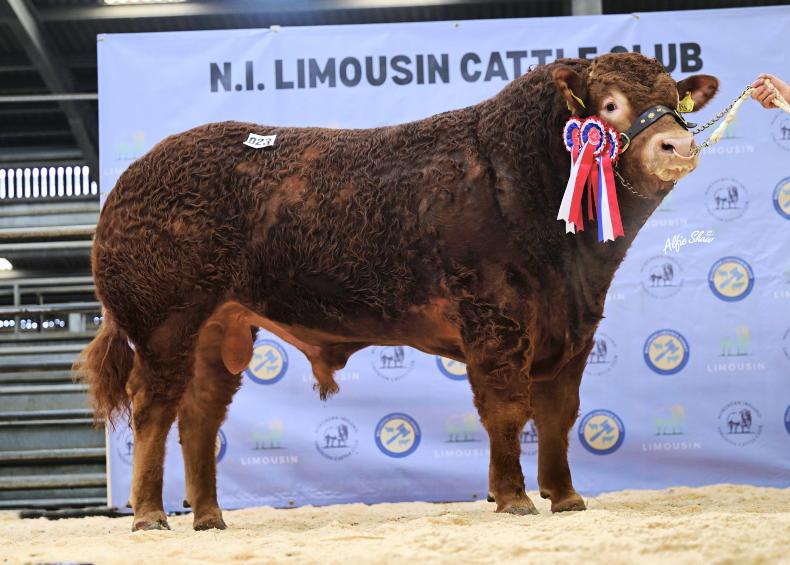We’ve had a very dry June and July so far in our part of the world, and as result, grass growth has fallen off a cliff. We have had to start to feed out 3t of silage every day and push feed to 5kg/day to extend the grass left on the farm.
We are getting some rain this week and the forecast is for more to come, so hopefully the deficit is short lived and 20 or 30 bales will be enough to pull us through. It’s a small blip in a great year and if we get enough rain this weekend we will be back making bales again next month.
The upside to this mini drought is that the whole farm was grazed to a very low residual when feed was tight, so grass quality should be excellent for the rest of the year. We are spreading nitrogen with the rain this week, which should give us a huge kick in growth rates if enough rain comes.
In other parts of the country, enough rain is falling weekly to keep a surplus of grass growing ahead of stock all the time, so bales are being made rather than fed out. We made our bank of fodder a bit earlier in the year, so it’s great to see these farms getting a chance to put away a buffer of forage for a rainy day.
Farm safety week
It’s farm safety week this week, which is a very useful initiative. It’s very important to highlight the dangers involved in our industry. I’m away with the family for a few days in Wales so we are missing a few safety related events and messages, but getting away for a few days to rest and take some time out is as good a way as any to prevent accidents.
We are busier than ever on the farm lately, as margins tighten and the ability to employ labour becomes greatly reduced. Indeed, there is a huge proportion of farmers working off-farm to make a living, where there would have been three or four men employed on the same farm 100 years ago, with nobody under pressure. The farm work now has to fit around mornings, evenings, weekends and holidays.
The work has become very condensed on most dairy farms too, with six intense weeks of calving, followed by calf rearing, starting a grazing season with the associated workload, and then a breeding season with the pressure to get everything right again.
That’s all fine, but the head and body needs some downtime to recover from that. Taking a break is very important if at all possible and is probably as good a prevention for making mistakes on farm as anything else. It could be a sports event, family holiday, or even a group of farmers visiting other farms to see something different.
The Irish Grassland Association Summer Dairy tour next week is one of the best days out for dairy farmers that there is. An overnight stay either side of it might be a good opportunity for a bit of time out from the daily grind.
We had a great event with the pure Friesian breeders in Firoda, Co Kilkenny last week. A huge crowd turned out to view Peader and Maureen Healy’s Firoda herd.
On a difficult, heavy farm on the Castlecomer plateau, with more coal under the soil than limestone, his herd has shown the resilience of the Pure Friesian breed to cope with long winters and short grazing seasons, not to mention the flexibility to take advantage of dry summers like 2018, when everything runs a lot smoother on that soil type. Plenty of Firoda bulls are available through AI for anyone wishing to dip their toe in the water.
Read more
Farmer Writes: agriculture has a lot of targets to meet
Farmer Writes: a stitch in time could prevent a lot of damage
We’ve had a very dry June and July so far in our part of the world, and as result, grass growth has fallen off a cliff. We have had to start to feed out 3t of silage every day and push feed to 5kg/day to extend the grass left on the farm.
We are getting some rain this week and the forecast is for more to come, so hopefully the deficit is short lived and 20 or 30 bales will be enough to pull us through. It’s a small blip in a great year and if we get enough rain this weekend we will be back making bales again next month.
The upside to this mini drought is that the whole farm was grazed to a very low residual when feed was tight, so grass quality should be excellent for the rest of the year. We are spreading nitrogen with the rain this week, which should give us a huge kick in growth rates if enough rain comes.
In other parts of the country, enough rain is falling weekly to keep a surplus of grass growing ahead of stock all the time, so bales are being made rather than fed out. We made our bank of fodder a bit earlier in the year, so it’s great to see these farms getting a chance to put away a buffer of forage for a rainy day.
Farm safety week
It’s farm safety week this week, which is a very useful initiative. It’s very important to highlight the dangers involved in our industry. I’m away with the family for a few days in Wales so we are missing a few safety related events and messages, but getting away for a few days to rest and take some time out is as good a way as any to prevent accidents.
We are busier than ever on the farm lately, as margins tighten and the ability to employ labour becomes greatly reduced. Indeed, there is a huge proportion of farmers working off-farm to make a living, where there would have been three or four men employed on the same farm 100 years ago, with nobody under pressure. The farm work now has to fit around mornings, evenings, weekends and holidays.
The work has become very condensed on most dairy farms too, with six intense weeks of calving, followed by calf rearing, starting a grazing season with the associated workload, and then a breeding season with the pressure to get everything right again.
That’s all fine, but the head and body needs some downtime to recover from that. Taking a break is very important if at all possible and is probably as good a prevention for making mistakes on farm as anything else. It could be a sports event, family holiday, or even a group of farmers visiting other farms to see something different.
The Irish Grassland Association Summer Dairy tour next week is one of the best days out for dairy farmers that there is. An overnight stay either side of it might be a good opportunity for a bit of time out from the daily grind.
We had a great event with the pure Friesian breeders in Firoda, Co Kilkenny last week. A huge crowd turned out to view Peader and Maureen Healy’s Firoda herd.
On a difficult, heavy farm on the Castlecomer plateau, with more coal under the soil than limestone, his herd has shown the resilience of the Pure Friesian breed to cope with long winters and short grazing seasons, not to mention the flexibility to take advantage of dry summers like 2018, when everything runs a lot smoother on that soil type. Plenty of Firoda bulls are available through AI for anyone wishing to dip their toe in the water.
Read more
Farmer Writes: agriculture has a lot of targets to meet
Farmer Writes: a stitch in time could prevent a lot of damage









SHARING OPTIONS